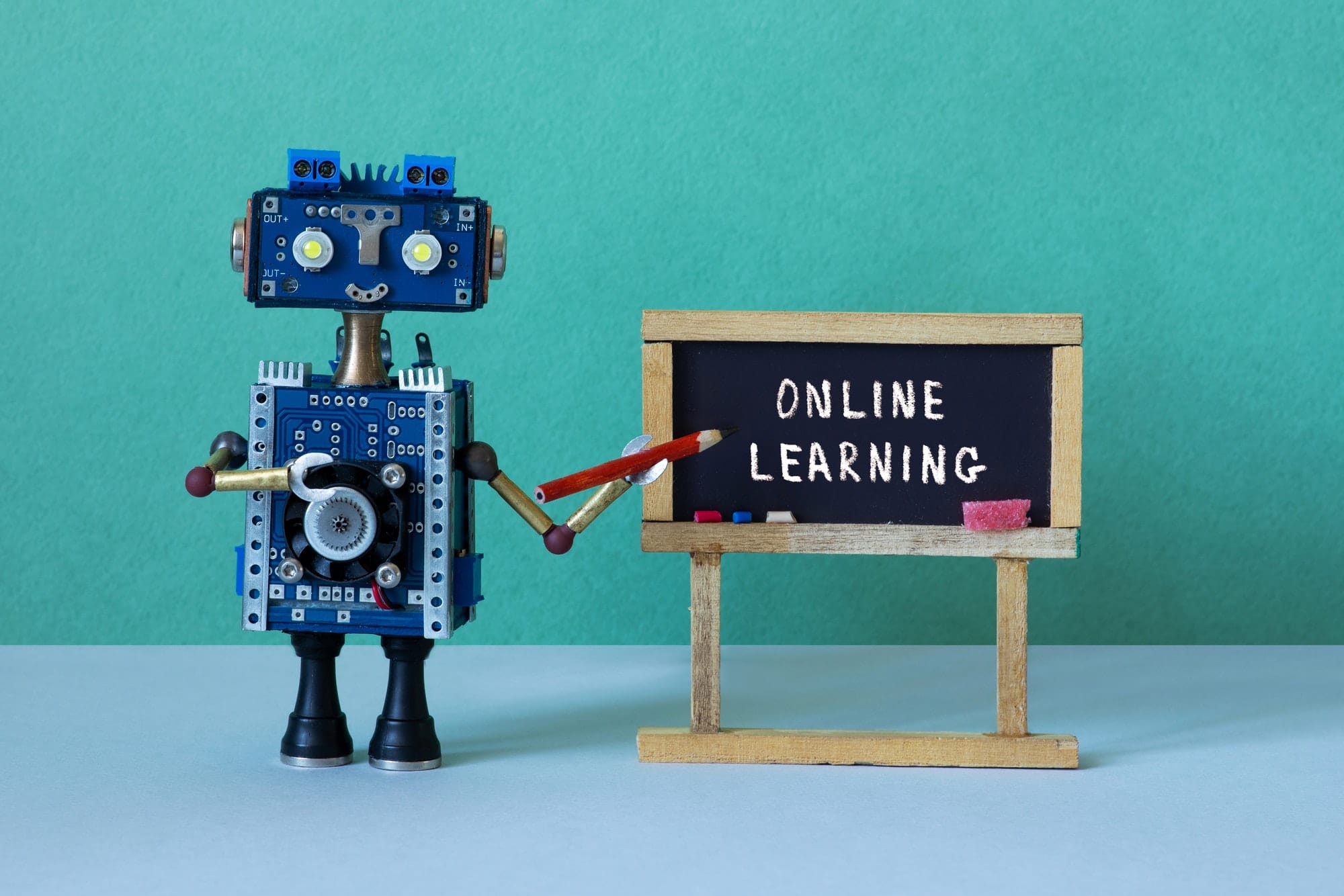For decades, science fiction authors, futurists, and filmmakers have been predicting the surprising (and sometimes catastrophic) changes that will come with the advent of general artificial intelligence. So far, Artificial Intelligence (AI) hasn’t made any of those crazy waves, and in many ways, it has quietly become ubiquitous in numerous aspects of our everyday lives.
From the intelligent sensors that help us take perfect images, the automatic parking features in cars, to the sometimes frustrating personal assistants on smartphones, the artificial intelligence of one kind or another is all around us all the time.
While we may not see humanoid robots acting as teachers for the next decade, there are many projects already in the works that use computer intelligence to help students and teachers get more out of the educational experience. These are just a few of the ways these tools are already being used, and those that will follow, which we are confident will shape and define the educational experience of the future.
1. Artificial intelligence can automate basic activities in education, such as grading.
In college, grading and testing for extensive lecture courses can be tedious, even when Technology Assistants (TAs) are split amongst themselves. Even in the lower grades, teachers often find grading requires a significant amount of time, time that could be used to interact with students, prepare for class, or work on professional development.
While AI may never truly replace human classification, it is getting pretty close. It is now possible for teachers to automate grading for almost all types of multiple-choice and fill-in-the-blank tests, as well as automatic grading of student writing. Today, essay grading software is still in its infancy and not quite up to par. Still, it can improve (and will improve) in the years to come, allowing teachers to focus more on classroom activities and student interaction than on qualification.
2. Educational software can be tailored to the needs of students.
From kindergarten to graduate school, one of the critical ways that artificial intelligence will impact education is by applying higher levels of individualized learning. Some of this is already happening through a growing number of adaptive learning programs, games, and software. These systems respond to student needs, emphasizing specific topics, repeating things that students have not mastered, and generally helping students work at their own pace.
This type of personalized education can be a machine-assisted solution to help students of different levels work together in a classroom or with teachers, facilitating learning by offering help and support when necessary. Adaptive learning has already had a significant impact on education worldwide (primarily through programs like Khan Academy). As AI advances over the next several decades, adaptation programs like these are likely only to get better and better. Expand.
3. You can point out areas for improvement.
Teachers may not always be aware of gaps in their lectures and educational materials, leaving students confused about certain concepts. Artificial Intelligence offers a way to solve that problem. Coursera, a large open online course provider, is already putting this into practice. When many students submit an incorrect response to an assigned task, the system alerts the teacher. It offers prospective students a personalized message offering suggestions for the correct answer.
This type of system helps fill in the gaps in explanation that can be given in courses by helping to ensure that all students are building the same conceptual foundation. Instead of waiting for a response from the teacher, students get an immediate answer, which helps them understand a concept and remember how to do it correctly next time.
4. Students can get additional support from Artificial Intelligence tutors.
While there are things that human tutors can offer that machines cannot, at least not yet, the future could see more students being supported by tutors that only exist in the binary world of zeros and ones. Some AI-based tutoring programs can help students through basic math, writing, and other subjects.
These programs can teach students the fundamentals, but so far, they are not ideal for helping students learn high-order thinking and creativity, something that real-world human teachers have yet to facilitate. However, that shouldn’t rule out the possibility that AI-based tutors might do these things in the future. With the accelerating pace of technological advancement that has marked the past decades, advanced tutoring systems may not be a pipe dream.
5. Programs powered by Artificial Intelligence can provide helpful feedback for students and educators.
Artificial Intelligence can help teachers and students create courses tailored to their needs, but it can also provide two-way feedback on the class’s success as a whole. Some schools, especially those with online offerings, use Artificial Intelligence systems to monitor student progress and alert teachers when there might be a problem with student performance.
This type of Artificial Intelligence system allows students to get the support they need and for teachers to find areas in which they can improve instruction for students who may have problems with the subject. However, the Artificial Intelligence programs at these schools don’t just offer advice on individual courses. Some are working to develop systems that can help students choose majors based on areas where they are successful. While students don’t have to follow the advice, it could set a new precedent in the college’s top pick for future students.
6. You are positively altering how we find and interact with information.
We rarely notice Artificial Intelligence systems that affect the daily information we see and encounter. Google tailors results to users based on location. Amazon makes recommendations based on past purchases. Siri adapts to your needs and commands. Almost all web ads are geared toward your interests and shopping preferences.
These types of intelligent systems play an essential role in how we interact with information in our personal and professional lives and can change how we find and use data in schools and academia. In recent decades, systems based on Artificial Intelligence have already radically changed the way we interact with information and with newer and more integrated technology. Students of the future may have very different experiences researching and searching for facts than today’s students.
7. It could change the role of teachers.
There will always be a role for teachers in education, but what their role is and what it entails may change due to new technologies in intelligent computer systems. As we’ve already discussed, Artificial Intelligence can take care of tasks like grading, help students improve learning, and even be a substitute for real-world tutoring. However, Artificial Intelligence could be adapted to many other aspects of teaching. Artificial Intelligence systems could be programmed to provide expertise, serve as a place for students to ask questions and find information, or even take teachers’ place for fundamental course materials. In most cases, however,
Teachers will supplement the lessons included by Artificial Intelligence, assist struggling students, and provide students with human interaction and hands-on experiences. In many ways, technology is already driving some of these changes in the classroom, especially in schools that are online or adopt the Flipped Classroom model.
Conclusion
Using Artificial Intelligence systems, software, and support, students can learn from anywhere in the world at any time. With these types of programs taking the place of certain types of classroom instruction, Artificial Intelligence can replace teachers in some cases (for better or for worse). Educational programs powered by Artificial Intelligence are already helping students learn basic skills. Still, as these programs grow and developers know more, they will likely offer students a much broader range of services.





